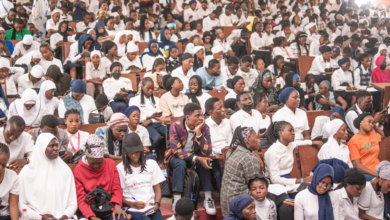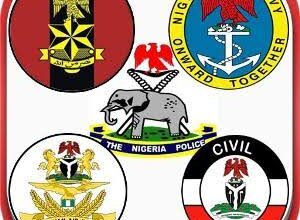Analysis: Here Are Where Things Stand In South Africa’s 2024 Polls

By: Ibraheem Muhammad Mustapha
As South Africa is at the peak of its May 29 elections, FactCheckAfrica has resolved to provide you with adequate analysis of events from the polls while our team continues to monitor the situation around mis-&-disinformation virtually.
ANC Loses Majority
The ruling African National Congress (ANC) is currently leading with around 40.22% of South Africa’s national vote, according to the electoral commission of the nation.
This is followed by the Democratic Alliance (DA), the leading opposition party with 21.77% while former President Jacob Zuma’s uMKhonto we Sizwe (MK) party clinging the third place with 14.59% and Julius Sello Malema’s Economic Freedom Fighters (EFF) with 10.31%.
Since the end of apartheid system in 1994, the ANC had been dominating the political scene in South Africa. Alas, the political elephant has just lost its majority for the first time in the history of the nation’s political games. In the 2019 general elections, it secured 57.5% of the national vote.
Prior to 2019, the ANC had consistently polled above 60% with its highest score being 69.69% in 2004. However, the party’s support has been eroding gradually and this sudden loss of majority is attributed to various factors, including internal party struggles, corruption scandals amidst growing discontent among South Africans on issues of high rate of unemployment, wealth inequality, recurring power outage.
The party’s handling of the economy, land reform, and state-owned enterprises has also been criticized. This decline in support may force the ANC to re-evaluate its policies and leadership approach.

Coalition Government Looms
With no party reaching the 50% threshold after over 99 percent of the votes counted, a coalition government is likely to happen. The ANC will need to negotiate with other parties to form a coalition to stay in government and get the 201 votes it needs from lawmakers to re-elect President Cyril Ramaphosa.
Although the ANC has given no indication of who it might work with if South Africa needs an unprecedented national coalition government, but, the scenario, if occurred, presents both opportunities and challenges, as parties with differing ideologies and interests must work together to govern effectively.
Ideologically, the Economic Freedom Fighters (EFF) is known for its radical economic transformation agenda, including land expropriation, while the Democratic Alliance (DA) is known for its advocacy for property rights and fiscal discipline. ANC’s traditional allies, the South African Communist Party (SACP) and the Congress of South African Trade Unions (COSATU) will likely push for greater influence in policy making, aligning with the ANC’s socialist-oriented approach.
The coalition government’s success hinges on the ANC’s ability to reconcile these differences in ideologies and find common ground with its partners. Failure to do so may result in legislative gridlock, political instability, and potential collapse of the coalition. As the ANC navigates these treacherous waters, its leadership will be crucial in balancing competing interests and maintaining a united front. The fate of South Africa’s political landscape hangs in the balance, as the country watches with bated breath the unfolding drama of coalition politics.
Top Contenders
The Democratic Alliance (DA) is in second place, followed by the MK party and the Economic Freedom Fighters (EFF). These parties have capitalized on the ANC’s weaknesses and appealed to voters seeking alternative leadership.
The DA, led by John Steenhuisen, has positioned itself as a champion of liberal democracy and good governance. The umKhonto we Sizwe (MK) party, led by former president Jacob Zuma who himself has been banned from contesting but still nominates and supports candidates from the party, has attracted support from former ANC members and those seeking a more radical approach to economic transformation. The EFF, led by Julius Malema, has maintained its strong grassroots support among youth and those seeking radical change.
Provincial Breakdown
The ANC leads in seven provinces, with a majority (over 50%) in five:
– Limpopo (74%)
– Eastern Cape (63%)
– North West (58%)
– Free State (53%)
– Mpumalanga (52%)
The ANC also leads in the Northern Cape (49%) and Gauteng (36%), but may need coalition partners to form governments in these provinces.
In contrast, the Democratic Alliance (DA) is set to retain control of the Western Cape (53%), which it has governed since 2009.
In a surprising development, the KwaZulu-Natal (KZN) province records the MK party leading with 46% of the vote, while the ANC trails with only 18%.
The ANC’s stronghold on provinces like Gauteng, Limpopo, and Mpumalanga is attributed to its historical presence and loyalty among traditional voters. However, the MK party’s gains in KwaZulu-Natal reflect a shift towards more radical economic policies and a desire for change in the province. The DA’s dominance in the Western Cape is due to its strong organizational structure and appeal to liberal voters.
Turnout and Demographics
The Electoral Commission’s 2024 National and Provincial Elections Results Dashboard reported a voter turnout of 58.57% as of 11:20 am today. Gauteng led the provinces with the highest voter turnout at 63.72%, followed by the Northern Cape at 62.49% and KwaZulu-Natal at 61.81%. The Western Cape trailed closely at 58.09%.
The other provinces’ voter turnout stood as follows: Free State at 57.45%, Mpumalanga at 58.03%, Eastern Cape at 54.47%, Limpopo at 53.68%, and North West at 51.82% as of 10:26 am. Notably, the 2019 national elections had a higher voter turnout at 66.05%, indicating a slight decrease in voter participation this year.
Electoral Amendment Act
This election marked the debut of the Electoral Amendment Act, allowing independent candidates to contest national and provincial seats. The Electoral Amendment Act has empowered independent candidates to run without being tied to a political party. This has given voters more options and allowed for a more diverse range of voices in the political landscape.
Way to Go
The Electoral Commission of South Africa will announce the final results, with coalition talks being waved around. The coming weeks will be crucial in shaping South Africa’s political future.
Once the final results are announced, parties might enter into negotiations to form coalitions and allocate cabinet positions. This process requires careful compromise and negotiation, as parties balance their interests and ideologies. The outcome will have significant implications for South Africa’s policy direction and governance.



